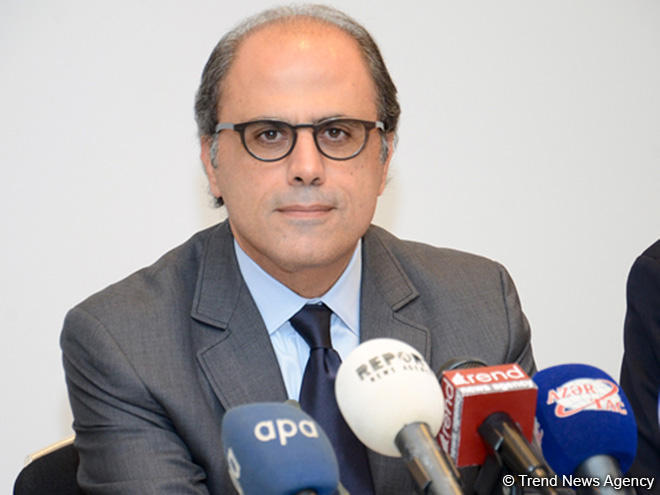BAKU, Azerbaijan, Nov. 23
By Nargiz Sadikhova - Trend:
Government measures introduced in Kazakhstan, both fiscal and in terms of financing, have reduced the impact of the COVID-related shock on the economy, Director for the Middle East and Central Asia Department at International Monetary Fund (IMF) Jihad Azour told Trend.
In Azour’s words, the COVID-19 crisis is definitely a crisis like no other because it is a double shock that has started with the eruption of the COVID-19 crisis and then was followed by another shock i.e. the drop in demand that has led to a sharp decline in oil prices.
“Therefore this is global and we are still, our countries are still struggling with it. Countries in general, in the region, have been reacting and have introduced quickly strict measures in order to protect the lives of their people,” Azour said.
He noted that measures were taken to save lives, and in addition the governments have introduced certain monetary fiscal measures in order to protect and provide support to the private sector, to address the replications of the COVID-19, and back up the economy.
“Currently, IMF projects that Kazakhstan’s economy will go into negative growth this year at minus 2.7 percent and will recover next year. Of course, thanks to the government measures introduced both fiscal and in term of financing this had reduced the impact of the shock on the economy,” Azour added.
Of course, he said, when compared to other oil-exporting economies, Kazakhstan was relatively better performing thorough the COVID-related crisis.
“Kazakhstan is an open economy that has developed a certain number of non-oil activities that also some of those activities were affected by the crisis in a sense. I think that the reforms that Kazakhstan has introduced after the 2016 and 2014 drop in oil prices and the shock that the whole region endured had helped in dealing with the crisis,” he said.
In his words, the reforms that were introduced, including in the financial sector and the development of a wide range of economic policy instruments including on the exchange rate, all these elements have helped Kazakhstan to manage the crisis and also to limit its impact on the economy.
“I think what is important now is what we are seeing as the recovery plan. Very recently Kazakhstan has developed a recovery plan that aims at addressing some of the issues that emerged with the crisis and prepare Kazakhstan for the next generation of growth and investments. I think that is important going forward and to regain the level of growth that Kazakhstan is used to enjoy in the last decade or so,” Azour said.
---
Follow the author on Twitter: @nargiz_sadikh






